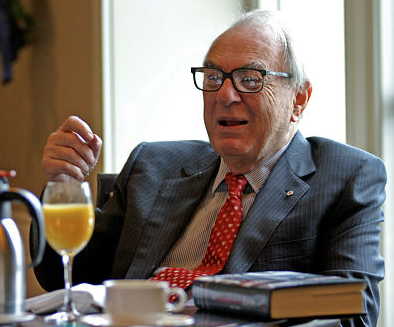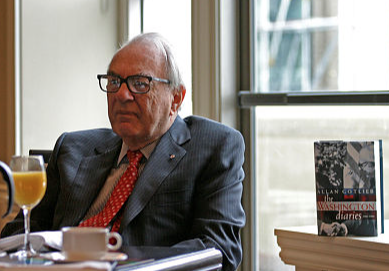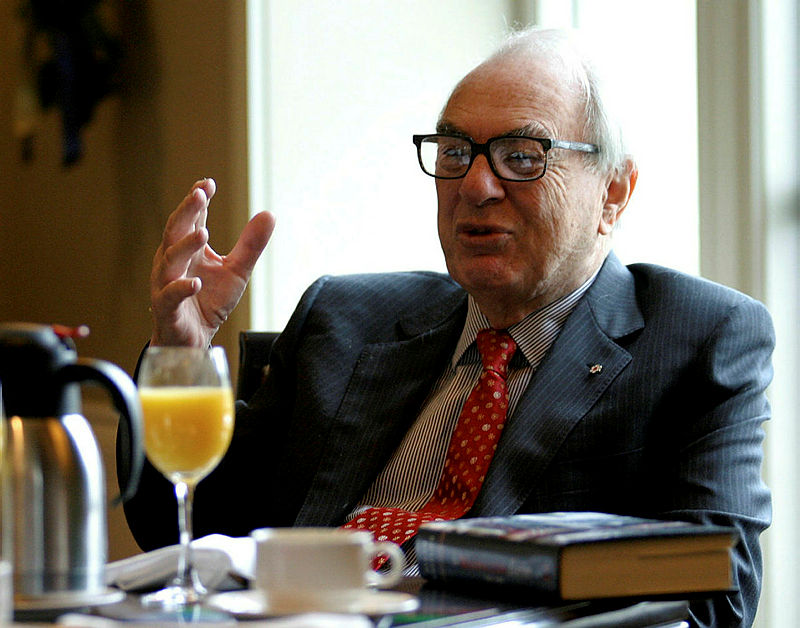The Trump administration’s threat to withhold critical medical infrastructure has angered Canadians and may have deepened an already open wound in the Canada-U.S relationship, as politicos say the federal government needs to find alternate avenues to protect Canada’s most important alliance.
Following a weekend of uncertainty over whether Ontario hospitals would receive much needed respirator masks, 3M came to an agreement with the White House on April 6 to allow those masks to be shipped across the Canada-U.S. border.
Before the agreement was reached, Ontario Premier Doug Ford lashed out at U.S. President Donald Trump for his initial decision to restrict the export of the masks.
It was the second idea floated by the Trump administration to receive rebuke from Canadian officials. Deputy Prime Minister Chrystia Freeland (University-Rosedale, Ont.) said last month that the reported U.S. proposal to send troops to the Canada-U.S. border was “an entirely unnecessary step” and Canada would view such a move as “damaging to our relationship.” In the end, the U.S. backed down on the idea.
Obama-era U.S. ambassador Bruce Heyman, who was posted to Ottawa from 2014 to 2017, compared damage to the Canada-U.S. relationship to a wound.
“The deeper the wound, the longer it takes to heal,” he told The Hill Times prior to the announcement that the 3M masks would be allowed to be exported.
“[Mr. Trump] is working his way to making deeper wounds with our allies,” including with Canada, he said. “There will be repair that is necessary.”
Prime Minister Justin Trudeau said on April 7 that the Canadian government continues to emphasize to the Trump administration the interconnectivity of Canada-U.S. health-care services and supply chains. The Hill Times photograph by Andrew Meade
“You earn trust over time, you can lose trust very fast. … It takes a significant amount of time to gain it back once lost. So trust is the basis of the relationship and that’s been under threat with this president.”
Asked if the agreement between 3M and the White House was a full or one-time exemption to export restrictions, Prime Minister Justin Trudeau (Papineau, Que.) said on April 7 that his government continues to work with the Americans.
“We’re going to continue to highlight to the American administration the point at which health-care supplies and services go back and forth across that border,” Mr. Trudeau told reporters.
Liberal MP Wayne Easter (Malpeque, P.E.I.) told The Hill Times that there has been an underlying feeling among Canadians of “anger and frustration” towards the U.S. government.
Mr. Easter, who is co-chair of the Canada-U.S. Inter-Parliamentary Group (IPG), said the pandemic proves the importance of building relationships in Washington beyond the White House, as well as at the state level.
“On the Canada-U.S. IPG, we just all work strenuously to ensure that things don’t deteriorate and get out of hand as a result of some of the decisions that come out of the White House from time to time,” said Mr. Easter, who on April 3 spoke with Republican Senator Chuck Grassley, chair of the influential Senate Finance Committee and the second-highest ranking Senator as the president pro tempore of the U.S. Senate.
While that conversation was meant to be about discussing the economic conditions brought on by the pandemic, Mr. Easter said the two talked about ensuring their respective governments don’t make decisions that are detrimental to the other through “a knee-jerk reaction rather than something well thought out.”
Former diplomat Colin Robertson, who sat on the international trade deputy minister’s NAFTA advisory council, said Canada has learned lessons on how to deal with the Trump administration: namely, to work around it.
He said during previous times of friction between the Trudeau and Trump governments during the NAFTA renegotiations, Canada put emphasis on outreach to governors and legislators at the federal and state levels, as well as business and labour interests, adding that Ms. Freeland was one of the architects of that strategy.
“She knows who to call. The Rolodex is there and we can pick up the phone. These are always what you want to have in an emergency. You don’t want to be meeting people or talking to people for the first time. And I think we have really embedded ourselves much more deeply into the United States as a result of the renegotiations of the economic agreement,” he said.
Conservative MP Colin Carrie (Oshawa, Ont.), his party’s critic on Canada-U.S. relations and a member of the Canada-U.S. IPG’s executive, said the pandemic is certain to put pressure on the bilateral relationship.
“Canada and the United States have been best friends, neighbours, and allies for the majority of our existence. The stress of fighting this pandemic would strain even the best relationships as governments scramble to save the lives of their most vulnerable,” he said, adding that he doesn’t think efforts to curb the virus would lead to long-term damage in the relationship, but instead to stronger ties as the two countries seek “common solutions.”
Mr. Carrie noted that the past uncertainty over the 3M shipment should serve as a sign that Canada needs a certain level of domestic production for its own vital equipment, adding that Canada should be negotiating with the U.S. for a reciprocal agreement for critical medical items.

Liberal MP Wayne Easter, right, is pictured speaking with U.S. Senator Chuck Grassley in 2017. Photograph courtesy of Twitter
Former diplomat Michael Kergin, who served as Canada’s ambassador to the United States from 2000 to 2005, said the threats are more of the same that have been levied at Canada since Mr. Trump’s inauguration in 2017.
“We recognize that we are dealing with an administration that is both very unpredictable, very much America first, [and] not long-term thinking in terms of its relationship with its allies,” he said.
The list includes the threat to suspend NAFTA, which prompted renegotiations of the pact, as well as personal attacks lobbed at Mr. Trudeau. Angered by Mr. Trudeau’s statements at a 2018 press conference following the G7 summit in Charlevoix, Que., Mr. Trump called the Canadian prime minister: “meek and mild” and “very dishonest and weak.” Mr. Trump’s trade adviser, Peter Navarro, later took to U.S. cable news to say there was a “special place in hell for any foreign leader that engages in bad-faith diplomacy with Donald J. Trump and then tries to stab him in the back on the way out of the door.”
Whether Mr. Trump’s rhetoric will have a long-term impact on the Canada-U.S. relationship remains to be seen.
“I think if Trump is re-elected, there is a chance that things could become a little more scratchy and problematic,” said Mr. Kergin, adding that Mr. Trump has been replacing the people in Washington that understand the importance of the Canada-U.S. relationship and the long-term interest that the U.S. has in managing it.
But Mr. Kergin said the strong safety net in the relationship is still present at the local and state levels, as well as with business and academic interests.
Carleton University international affairs professor Fen Osler Hampson said Mr. Trump’s protectionist ideas shouldn’t have come as a big surprise for Canada.
“I think it’s fair to say that we always have to look out for our own interests. The Americans aren’t going to be looking out for them,” said Prof. Hampson, who authored the soon-to-be-released book, Braver Canada, with Derek Burney, a former Canadian ambassador to the U.S., which calls for further economic diversification away from the United States.
“It’s the new abnormal,” he said. “You’ve got to be constantly on guard for surprises, uncertainty, drastic shocks, and that means being nimble, being adept, being smart.”
Former U.S. ambassador to Canada Gordon Giffin, who was appointed to the role by U.S. President Bill Clinton and served in the post from 1997 to 2001, said the things that are being done in current circumstances are not representative of the relationship as a whole.
“I think the relationship is reasonably solid,” he said, noting though that the U.S. is still without an ambassador in Ottawa who could help prevent some issues in the relationship from coming to the surface.
“When we get our new ambassador there, that’ll help.”
Aldona Wos has been named the U.S.’s next ambassador to Canada, but she has yet to be confirmed to the post by the U.S. Senate. Previous ambassador Kelly Craft left the role last fall to become the U.S. ambassador to the United Nations.
Canada a casualty of U.S.’s underprepared pandemic response, says former ambassador
“[At one point] I was with President Obama in the White House,” recalled Mr. Heyman, “and he said, ‘Do you know what keeps me up at night?’ He said: ‘a global pandemic.’”
“That’s not what I expected, but I will never forget that conversation. I especially won’t forget it now,” the former diplomat said.
Mr. Heyman said the current U.S. president “lost precious time” to curb the virus with an international partnership when he didn’t take the threat of the virus as seriously as he should have when his intelligence advisers first alerted him to the threat.
Earlier this week, The New York Times reported that U.S. officials had warned senior Trump administration officials in January that the pandemic could put millions of Americans at risk.
“Had [Mr. Trump] done the work in advance then we would have had plenty of masks to go around for all the people who needed it, on both sides of our border,” Mr. Heyman said.
Along with the lack of preparedness, Mr. Robertson said, Canada has also been a casualty of Mr. Trump’s America First policies, adding that he didn’t think any previous U.S. president would threaten to withhold the masks from Canada.
“It doesn’t matter what administration—Carter, Ford, Nixon, Clinton, Regan—they all saw the value of alliances and the importance of keeping the allies a part of the alliance,” he said. “Trump just doesn’t recognize that.”

















